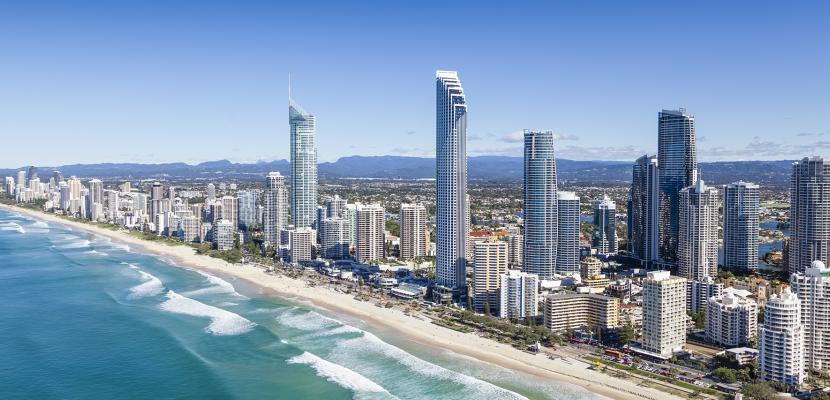
Researchers from Bond and Griffith Universities are collaborating on a two-year, national beach valuation study that will help inform the future management of Australia’s beloved beaches and coastlines under threat from climate change and severe weather events. The Gold and Sunshine Coasts in Queensland, Clarence Valley in northern New South Wales, the Surf Coast of Victoria and Margaret River in West Australia will all be put under the spotlight, with tourists and residents in each area to be surveyed on their beach use. “These coastal Local Government Areas represent some of Australia’s and the world’s best beaches and surf breaks and were selected as case study locations in recognition of their national and international importance,” said Principal Investigator, Associate Professor Mike Raybould from Bond University. “They each rely heavily on sea change in-migration and lifestyle quality and the economic, environmental and recreational values of their beaches are an important component of that image. “This study is about trying to understand these values in real dollar terms and considering how these could be impacted by adverse events such as extreme weather events, and coastal erosion related to climate change. “Knowing the values that beaches and coastlines generate can help inform the appropriate allocation of resources to preserve and protect them,” he said.
Funded by the Fisheries Research and Development Corporation and the Department of Climate Change and Energy Efficiency on behalf of the Australian government, the study will seek to assist local Councils and the State and Federal governments with coastal management strategies and funding allocation. It also aims to develop tools that will assist coastal planners and decision makers to assess the socioeconomic impacts of climate change. “One of the most likely and immediate projected climate change impacts is an increase in sea levels, coastal erosion and inundation which has the potential to critically impact the state and function of coastal systems,” said Associate Professor Raybould. “What is less clear is the way in which beach visitors and coastal communities will be affected by, and respond to, these changes. “By predicting how current beach recreational values may be altered by climate change or other severe weather events in the future, we hope to better inform planning and management decisions for Australian beaches,” he said.
Over 16,000 surveys will be mailed to residents in the selected locations over the next month. Residents may also elect to participate in an online survey. All individual responses will be confidential and the overall results will be reported towards the end of 2012. The research team would like to acknowledge the support of project partners the Gold Coast City Council, Surfing Australia, Surf Life Saving Australia, Sydney Coastal Council’s Group and the National Seachange Taskforce.